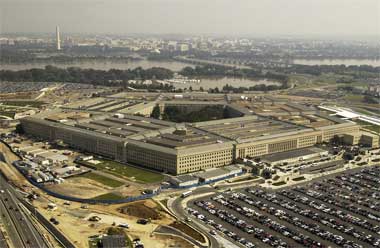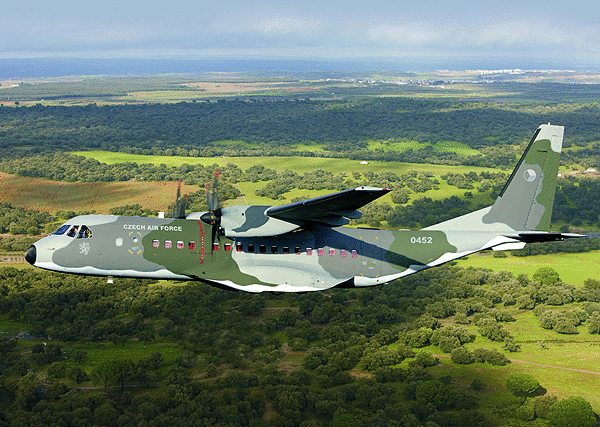Grappling with the converging forces of strategic history and fiscal necessity, the Defense Department is making choices now that will determine how the nation transitions to the coming era, Deputy Defense Secretary Ashton B. Carter said today.
Speaking at the Air Force Association’s Annual Air and Space Conference and Technology Exposition in Maryland, Carter congratulated the Air Force on its 65th birthday. He noted that the same legislation that created the Air Force also established the Office of the Secretary of Defense.
“For the last 65 years, our airmen have delivered critical capability all over the world, and at the same time the Air Force has committed itself to developing cutting-edge, future-focused capabilities to ensure air supremacy in every generation,” the deputy secretary said. “Because of these core strengths, we know the Air Force will continue to deliver for the United States. The question is which strategic choices will the Air Force, and the nation, make in the future?”
Carter said such choices are embodied in the new defense strategy, crafted last winter in what he called a remarkable process that was steered personally by President Barack Obama, Defense Secretary Leon E. Panetta, and Army Gen. Martin E. Dempsey, chairman of the Joint Chiefs of Staff.
Obama convened the DOD leadership and others in a series of conversations about the future trajectory of national defense, Carter said.
“And we made a series of decisions … to design a balanced effective defense strategy,” he added, “taking into account the cuts imposed upon us and building a force for the future to meet our strategic objectives … from now to 2020 for the era ahead.”
Three tenets of the strategy include a continued investment in future-focused capability, a continued focus on the Middle East and a rebalance to the Asia-Pacific region, and an effort to strengthen global alliances, Carter said.
It’s important to be disciplined about investing in the future in a time of budget stringency, he said, because the newest investments have the shallowest roots.
“We are continuing to not only protect, but [also] increase investments in things like cyber, space, electronic warfare, unmanned aerial vehicles [and] the long-range strike family of systems, all of which are so important to the Air Force and will be so important to our future operations,” the deputy secretary said.
“We will continue to invest in special operations forces for counterterrorism, which we’ve gotten very good at over the last 10 years,” he noted, “and we need to keep being good at it, because that mission will never go away.”
DOD will continue its science and technology investments across the board, he added, and to develop space capabilities.
On the DOD’s rebalance to the Asia-Pacific region, where so many U.S. economic and security interests lie, Carter said the pivotal military presence of the United States in the region for the past 70 years has given sovereign states there the opportunity to choose their own economic and political futures.
“Our presence helped first Japan and South Korea to rise and prosper, and then Southeast Asia to rise and prosper, and now China and, in a very different way, India to rise and prosper,” the deputy secretary said. “Working with all of the countries of the region, we intend to continue to play that positive, pivotal, stabilizing role.”
The rebalance involves DOD, he said, but it’s also a broader government effort.
“It begins with our support for longstanding principles and values of governance, free and open access to commerce, a just international order that upholds the rule of law, open access to all domains, and the peaceful resolution of disputes,” Carter said.
The rebalance includes diplomatic and military engagement across the region and involves all military services, he added.
“We engage in regional multilateral forums and diplomatic initiatives, we conduct large air exercises with a number of key regional partners, [and] we cooperate on defense exports with Air Force foreign military sales alone to the region totaling over $7.7 billion in fiscal year 2012. We’re preparing for any opportunity or challenge we face and developing new operational concepts to continue to succeed,” the deputy secretary said.
“As Secretary Panetta is saying in Asia these days while he’s there, and I was saying a few weeks ago when I was in Asia, we’re not just talking the talk of rebalance. We’re walking the walk,” he added.
The Air Force will play a significant role in the DOD rebalance to the Asia-Pacific region, Carter said, “along with all the other services, and Secretary Panetta and I are very focused on managing that rebalance and delivering on our commitments.”
DOD is working to strengthen global alliances and develop innovative partnerships to support its national security objectives, the deputy secretary added.
“Our allies and partners are a force multiplier for us,” he said, “and our goal is to strengthen their capabilities so they can operate effectively and share the security burden with the United States.”











